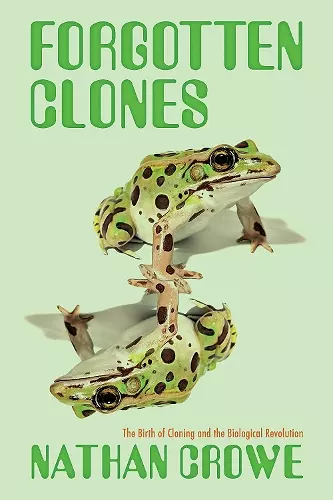The Forgotten Clones
How Nuclear Transplantation Changed Science and Society
Format:Hardback
Publisher:University of Pittsburgh Press
Published:28th May '22
Should be back in stock very soon

Long before scientists at the Roslin Institute in Scotland cloned Dolly the sheep in 1996, American developmental biologist and aspiring cancer researcher Robert Briggs successfully performed the technique of nuclear transplantation by cloning frog nuclei in 1952. Although the history of cloning is often associated with contemporary ethical controversies, The Forgotten Clones revisits the influential work of scientists like Briggs, Thomas King, and Marie DiBerardino, before the possibility of human cloning and its ethical implications first registered as a concern in public consciousness, and when many thought the very idea of cloning was experimentally impossible. By focusing instead on new laboratory techniques and practices and their place in Anglo-American science and society in the mid-twentieth century, Nathan Crowe demonstrates how embryos constructed in the lab were only later reconstructed as ethical problems. His book illuminates the importance of the early history of cloning for the biosciences and their institutional, disciplinary, and intellectual contexts, as well as the changing relationship between science and society after the Second World War.
ISBN: 9780822946274
Dimensions: unknown
Weight: unknown
336 pages